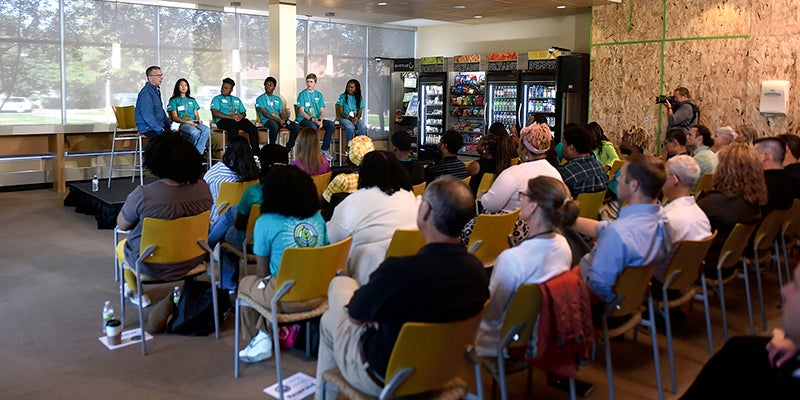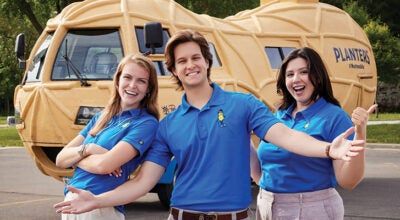Cedar Valley Services awarded state grant; Transit group 1 of 23 providers in Greater Minnesota awarded money
Published 10:15 am Friday, March 31, 2017

- A SMART Transit bus pulls out of the headquarters. Herald file photo
The Office of the Lieutenant Governor on Thursday announced that 23 Greater Minnesota transit providers would be receiving funds from the Greater Minnesota Transit Grants, including Austin-based Cedar Valley Services Inc., who will receive $471,800.
In a press teleconference, Lt. Governor Tina Smith and Transportation Commissioner Charlie Zelle discussed the grants and answered questions.
“This is not an issue for Greater Minnesota or the metro area, but all of Minnesota,” Smith said about the need for increased transit funding. “Transit ridership in rural Minnesota has increased by 13 percent, which demonstrates a demand increase.”
Zelle stressed the importance of transit companies, especially in rural communities.

Transportation Commissioner Charlie Zelle
“Transit in Greater Minnesota is vitally important,” said Zelle. “There are fewer options in our rural communities for Minnesotans who don’t drive. These bus services are a critical lifeline for many Minnesota workers, seniors, students and families across our state.”
“We expect to increase transit service hours by 100,000 hours over the next two years,” said Zelle.
Zelle said although the use of the funds would be monitored, it was up to the providers to determine what to do with the money.
Sixty transit service providers throughout Minnesota applied for grant money and 23 providers were approved for a total of $23.7 million in funds.
Cedar Valley Services has offices in Austin, Albert Lea, and Owatonna and provides services for residents of Freeborn, Mower, Steele, and Waseca Counties.
“We’re excited to be able to provide more services to help more people,” said Melinda Estey, transit manager of Southern Minnesota Area Rural Transit. Estey, who wrote the grant application for Cedar Valley Services, applied for four expansion projects.
“The application required that you be able to prove that the projects you were requesting funds for would be used,” she said. “They required a lot of research to show they were legitimately needed.”
Based on the total funds awarded, she believes that three of the four projects were approved: an additional bus for the pre-school Rainbow Route in Mower County and additional pre-school buses in Steele and Freeborn counties. She believes the fourth expansion project, a countywide bus for Mower County, was declined.
Estey said the money would be used for the purchase of the new buses and would cover their operating costs for a year and a half.
Although the Greater Minnesota Transit Grants are meant to add extra funding for two years, Smith and Zelle stated that a 20-year transit plan is in the final stages of planning.
“Having to turn down applications shows the need for a long-term plan,” said Smith.





